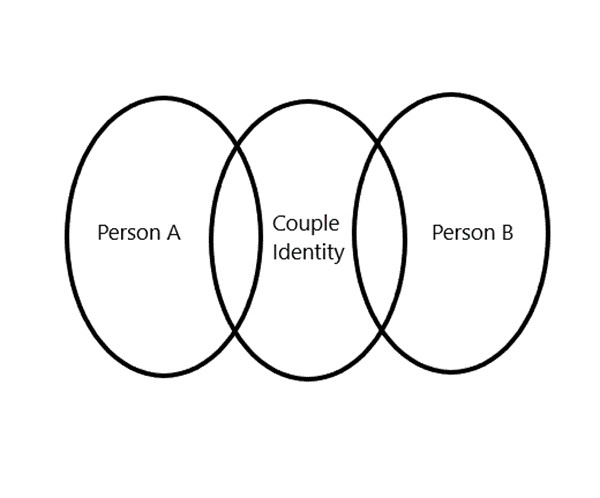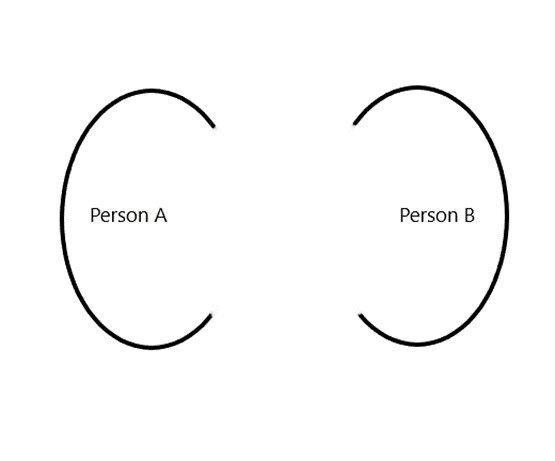By Richard West
Guest Writer for Wake Up World
“The biggest lie we’re told is ‘Be with someone who makes you happy.’ The truth is, happiness is something you create on your own. Be with someone who adds to it.”
~ Unknown
“Codependency is inevitable” – this was the realization I reached after many years of trying to figure out just why I and almost everyone around me shows some sign of it. Some more, some less, but the only people who don’t have it are the ones that have spent time working on it.
[pro_ad_display_adzone id=”110028″]
So let me take you on a journey of thought and reflection. It starts with my own story and finishes with some pretty unique perspectives on codependency, how it’s formed and what to do about it.
First let’s define it so we know what we’re dealing with here – Codependency happens when someone needs another to behave in a certain way in order to feel happiness or completion.
For me this felt normal. It was the case in my early relationships and I was okay with it because I imagined that this was the accepted paradigm and there wasn’t any other way.
It took codependency slapping me in the face to really overcome it. It happened in my 3rd relationship. It was a whirlwind romance. We were living together practically after the 3rd date.
It felt amazing, blissful, complete. Sound familiar?
We had a child together – then we moved from England (my home country) to Austria (her home country). That’s where it all changed.
I was leaving everything behind except my daughter and partner – and I clung to the idea of things being how it always was with them. I clung to the old ways I received love as the only part of me that was left in my new life.
However, my daughter formed a new bond with her grandmother in Austria who systematically kept me from being a parent to her, taking over whenever she needed anything and even speaking over the top of me whenever I spoke to her.
My partner was working a lot and understandably didn’t have so much energy for our relationship after her work and parenting responsibilities. I was physically dependent on her – I didn’t speak the language, I didn’t know the system, I didn’t know anyone!
But instead of trying to branch out on my own I continued to take the comfortable option and rely on her (mostly). Over time it put a strain on the relationship. I expected things to be as they always were.
I expected that blissful sense of completion, and I expected her to fulfil it with me.
She became more and more distant, refusing to talk or even acknowledge a problem in the relationship. She started gaslighting me and putting me down when she felt things getting too ‘emotional’.
I reacted by doing everything I could to please her in the hope that she would show me the love she once had. What else could I do to get that love I so craved? Sometimes it even worked.
I ignored my boundaries, I didn’t speak up when I disagreed, I was afraid to ask for things that I wanted/needed.
Over the course of 2-3 years I slowly realized that this couldn’t be ‘how it’s supposed to be’. I slowly realized that despite the intense loss I felt, there could be something better for me out there.
So I made the jump and ended the relationship.
Over the next 2 years I delved deeply into why I behaved that way. I went to workshops, I trained my self-awareness. I cried… a lot. I left no stone unturned and slowly the answer (or at least MY answer) dawned on me.
I started to realize that I had formed my very identity by the people around me, how they behaved towards me and how I reacted to them.
Then I realized that almost everyone else does the same – their self-perception is governed by their relationship to the outside world and how it interacts with their inside world. In other words, they define themselves according to something outside of them.
I started to look more closely into why this is the case and my research took me back to the very moment we come into this world. The way our consciousness is formed as young children.
The realization hit me square in the face! Codependency is inevitable. Wow, such a relief! I could forgive myself for disempowering myself all that time.
Here’s why it’s inevitable.
When we come into form as a baby our consciousness is a mish-mash of perception. We don’t yet realize ourselves as separate from the world or people around us. Even our senses are mixed, being about the smell sound or taste colours.
Essentially our inner and outer worlds are one and the same.
From as early as 2 months up until around 2 years our sense of self as separate from the world around us develops.
Up until this point we exist in a perpetual state of beingness. We are complete. One in ourselves and with the ones who love us – a feeling many would attribute to unconditional love.
However, realizing that we are separate from our primary source of love changes things!
We start to receive feedback loops about how we’re being from people around us. Thus, we form our identity at a time when we also process feedback from the outside world.
We receive our love from that which used to be a part of us and we define ourselves by how this love is given and received. Thus we become emotionally dependent on our parents.
As we grow up, this pattern continues as it’s the only way we know to receive love. We make ourselves dependent on how other people behave in order to feel love in our lives. Friends, colleagues and most importantly, romantic partners.
When two people who identify themselves based on how the outside world receives them come together, a codependent relationship is born.
Thus a person who feels lack of confidence in social situations might be attracted to a very outgoing person. Someone who needs approval to feel loved will be attracted to a people pleaser.
We find those who fill the holes we perceive in ourselves. It makes us feel complete.
Thus, a third entity gets formed in a relationship – The Couple Identity
Thus we define ourselves by who we are when we’re in the particular relationship. It may feel like a sense of wholeness, completeness. But it’s not autonomous completion. It’s dependent on the other remaining as the person they always have been.
When a codependent relationship ends, it can be extremely painful. It can take years to get over as evidenced by my own experience. We need to figure out who we are without our partner.
Essentially what we’re left with it this:
So, now that we know how codependency forms and how it manifests, lets explore how to overcome it.
Essentially you have to break the pattern of defining yourself based on how the world around you behaves. Instead of interacting with the world like this (outside-in) you have to flip it around to an inside-out approach.
In the months and years following the break-up I started to realize that my reality was created by how I was being. It wasn’t about what I was doing, but rather the aspects of beingness that I expressed.
With more and more confirmation that this was the case, the question I continually asked myself was not what to do, but how to be.
What could I bring to each life circumstance? Passion, determination, curiosity, patience, compassion, acceptance?
I noticed that when I embodied a certain state of being, the world would configure accordingly to facilitate exactly what I needed (not necessarily what I wanted).
So, I started to identify with how I was being, not with how the world responded.
Even loss became easier to bare because I realized that it wasn’t a person or situation I was missing, but how I felt when I was around them. Thus, I could easily reclaim the feeling, either for myself or with others.
Then it got even deeper!
There is a part of you that doesn’t get touched by your experience. It’s a silent witness to all that happens. A sacred ground of presence within.
By anchoring your centre of consciousness in this presence, you connect with the essence of who you are. Then, it’s impossible not to feel whole, because all experience emanates from this one point. A singularity of beingness.
It can be discovered through meditation or through connecting with the senses and then feeling beyond them. Make a daily practice of this and you’ll feel it.
However, to make this absolutely clear, it’s not about being detached from life. On the contrary. This experience allows you to be fully engaged.
When I feel grief and joy in the same moment, while maintaining the sense of presence then I know I’ve hit the sweet spot of life.
Being in this state allows authenticity to come through in all relationships.
You can enter in the beautiful dance that is relating deeply to another and never lose yourself because you know that who you are goes way beyond any reflection or experience a partner can give you.
The magical part is, since doing this I’ve been able to engage much more openly, intimately and authentically in relationships than I ever could before.
It’s possible for everyone. Even though I’ve shared my own journey which may not be for all, you can find your own path to inner wholeness beyond outer identity. No need to follow a formula. You’re already configured to do it!
About the author:
 Richard West facilitates self-realization through conscious relating and transitional periods of life. He lives in Austria in a tiny house by the river Danube and enjoys playing banjo, connecting with the deer in the forest and building community. He offers sessions with a personal story, an online home study codependency course, and a self-realized communication program. To find out more visit his website www.partingthewaves.com
Richard West facilitates self-realization through conscious relating and transitional periods of life. He lives in Austria in a tiny house by the river Danube and enjoys playing banjo, connecting with the deer in the forest and building community. He offers sessions with a personal story, an online home study codependency course, and a self-realized communication program. To find out more visit his website www.partingthewaves.com
[pro_ad_display_adzone id=”110027″]



